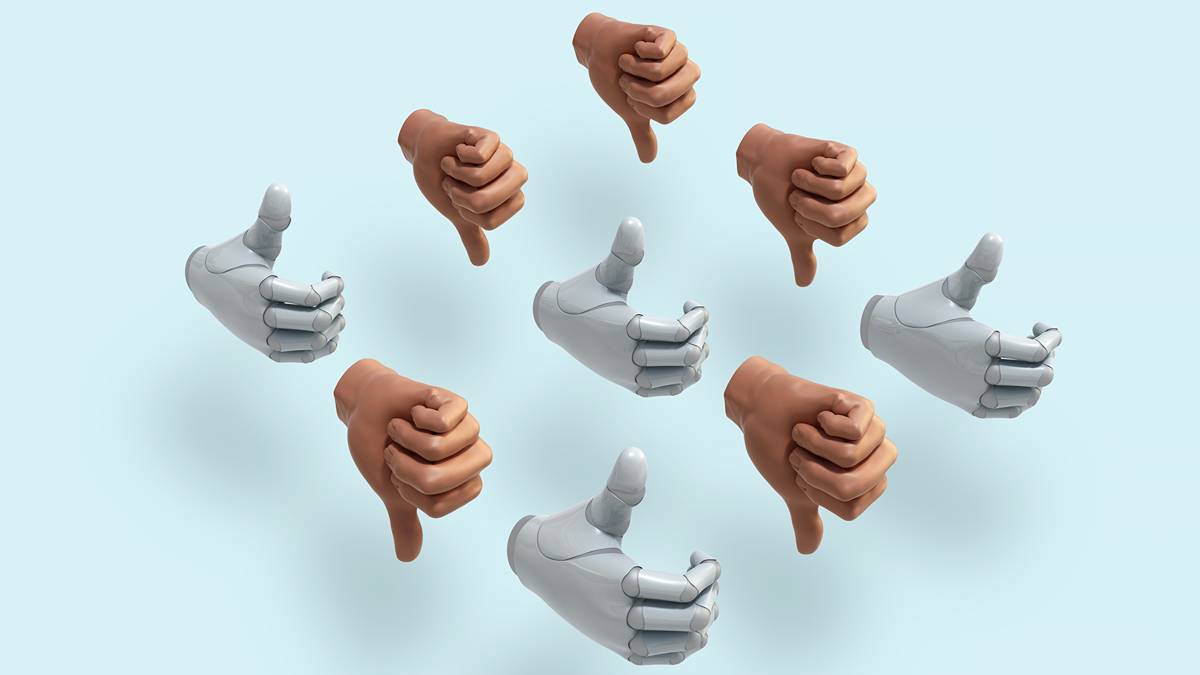Why we should have an AI opt-in system

Pic via Getty Images
Artists, writers and other creatives should be able to decide if they want technology behemoths to freely scrape their content to train artificial intelligence models, according to enterprise software company Workday.
The Productivity Commission is considering a text and data mining exception to copyright laws. Atlassian billionaire and Tech Council of Australia chair Scott Farquhar also endorses the move to unblock “billions of dollars” of foreign investment and ensure Australia gains a significant slice of the AI boom.
But Midnight Oil frontman and former Labor frontbencher Peter Garrett has described a proposed plan to change copyright law in favour of big tech companies and AI developers as an “existential threat to artists”, while calling for community action to ensure that it does not come to pass.

Workday vice president of AI, Kathy Pham, said while there are benefits in sharing content and data, it should be up to copyright holders how they want their material to be used.
“I find it to be in the same state as where we were with music decades ago, where musicians want to be able to share their content but also get the royalties. And it took us a while to figure that out,” Ms Pham said.
“It’s interesting now that we’re using artists’ work to create something new but ultimately on their work and their training. So there are lots of complicated conversations globally in the US, EU, Singapore, Australia and New Zealand around the right path forward on perhaps the value sets of each region.”

For Workday, which develops corporate software, mainly in human resources and finance, Ms Pham said it did not have the “luxury of training on anything we want”. “We can’t just go and say we’re going to pull all of our 11,000 customers’ data into one big pile in the data lake and train on all of them,” she said.
“Almost every customer will say, ‘well, I want all the insights from every healthcare customer you have, but I don’t want to share my own’. So we still require and offer an opt-in to be able to share your information, so that we can train on it in a de-identified way.
“In the consumer space, to get much more personalised results, you need more images, artists’ stuff. Some artists will be like ‘I want to be represented in that space’. Others will be, ‘if you want me to be represented, I need to be paid for it’. So I think that’s still a space that’s being litigated with policy changes around the world.”
Ms Pham said trust was becoming the new currency in the AI revolution, with new Workday research revealing that almost half of workers still worry that the technology will erode critical thinking and human connection.

Yet, 75 per cent of employees are comfortable with AI agents working alongside them – with 30 per cent even willing to accept one as a manager.
“If your workplace doesn’t have supportive managers … 30 per cent of people believe, ‘oh, replacing my actual manager with something, another entity, an AI agent or something else, could be better for my workplace. So it would be interesting to unpack that more,” Ms Pham said.
But she said the technology still has its limitations that employers need to be mindful of, and advocated a new c-suite role, chief work officer.
“The concept of a chief work officer who thinks about all the components of work. When we blanket cut jobs without understanding all the tasks and goals of that job, we will miss all the pieces that person did.
“So we have to really understand all the components of work and then figure out, ‘OK, here’s what AI will be really good at. Maybe it’s packing butter. Maybe it’s lifting 1000 tons, because no single human can do that. Maybe it’s reading 80,000 papers overnight’. They’re all these things that technology can do.
“And then we figure out which pieces we want to keep that’s very uniquely human, and either reassign people or retrain or even create new roles to match that. That’s how I view the future of how we think about our workforce.”
This article first appeared in The Australian as Workday backs AI opt-in system amid artist copyright furore
Related Topics
UNLOCK INSIGHTS
Discover the untold stories of emerging ASX stocks.
Daily news and expert analysis, it's free to subscribe.
By proceeding, you confirm you understand that we handle personal information in accordance with our Privacy Policy.








